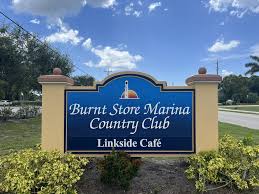The Crosby Marina Club Guide

Marina clubs provide an excellent way to experience boating without all the headaches that come with owning one yourself. For an affordable fee, you have access to numerous models of watercraft so you can experiment.
Use email newsletters to stay abreast of any relevant marina community news, pandemic requirements, or opinion surveys created and shared amongst your marina community members. Also, create and share surveys in order to gauge opinions amongst your community members.
Safety
Keeping marina premises secure requires more than the traditional security options, like locking doors and using top-of-the-line video monitoring to deter criminal activity from occurring. Site managers must devise a comprehensive plan to enhance safety on their property; meeting with boaters to discuss their security concerns helps managers come up with plans that consistently minimise risks.
Marina staff should remain aware of potential fire hazards and safety protocols, such as regularly inspecting docks and boats to identify potential fire risks and keeping up-to-date fire extinguishers visible and functioning correctly. They should also remind boaters to switch off any heaters or power equipment when leaving their vessels unattended.
At the core of boating safety is education for guests. They should pay attention to posted signs, speed limits, and any regulations; failing to do so could put guests in dangerous situations or result in being denied access to facilities.
Finally, boaters should always wear life jackets when cruising in congested or tight areas. Boaters should also be wary when walking across docks or decks during wet conditions and non-slip mats and treatments can add another layer of safety for slippery surfaces. Furthermore, no-wake zones must be observed to protect swimmers, small boats, and docks from excess wake turbulence.
The District of Columbia Clean Marina Programme encourages environmental stewardship and waste reduction at marinas and yacht clubs throughout the area while protecting water quality in the Anacostia, Potomac Rivers, and Washington Channel. It is administered jointly by the National Park Service, which oversees shoreline management and the Department of the Environment, which handles water quality management.
Security
Your marina offers an ideal environment for boating and other water activities, but it also poses certain security risks that go beyond simply boats. Criminals can exploit its property in many ways and the best way to combat these dangers is with high-definition video surveillance systems.
Video surveillance systems serve as powerful deterrents, helping detect suspicious activity like people wandering your marina without wearing visible clothing such as hats. When the system detects such activity, you and the police are alerted to potential threats before damage or theft occurs. Security professionals play an integral part in marina security by conducting regular patrols and watching security cameras for suspicious behaviour; their presence alone often acts as an effective deterrent and may prevent yacht theft cases or security breaches altogether.
Fencing and gates act similarly to video surveillance in that they form barriers that criminals find hard to break through, keeping out unwanted guests while maintaining the visual aesthetic of your marina. When selecting a fence type, chain link is more effective than wrought iron but both options provide protection for marina property.
Environment
The Maryland Clean Marina Initiative assists marinas, boat yards, and yacht clubs in safeguarding their livelihoods through clean air and water. To do this, they distribute a comprehensive pollution prevention guidebook specifically targeted at marinas, recognise “Clean Marinas” through an awards programme, conduct outreach activities, and compile best management practices (BMPs) that marinas can implement to benefit their facilities, reduce pollution levels, and protect the environment. This book even features Clean Boater Tip Sheets!
BMPs in the Guidebook are marked as mandatory, programme required, or recommended depending on their level of importance to marina operators and state Clean Marina programmes for assistance with meeting certification requirements that differ depending on where they operate their marinas. As it’s an ongoing document that’s regularly revised, marina operators should contact their state Clean Marina programmes for guidance in meeting certification requirements, which vary by state.
ONE15 Marina Sentosa Cove in Singapore is proud to have become the first marina in this region to receive this renowned, internationally recognised award for environmental sustainability. This accolade honours our efforts at operating an eco-friendly club and hotel that strives to improve lives among customers, staff, and the wider community. You can learn more by following them on YouTube (the link is external).

Brande is a local news writer with a passion for capturing the essence of small communities, highlighting events and stories that shape everyday life.

